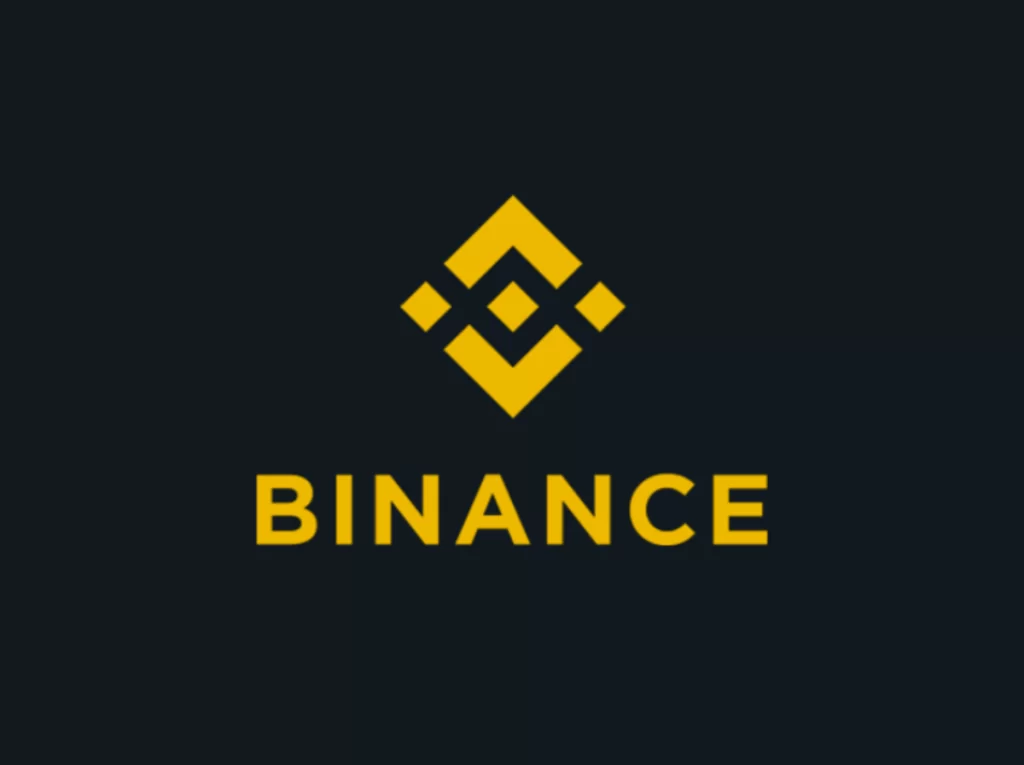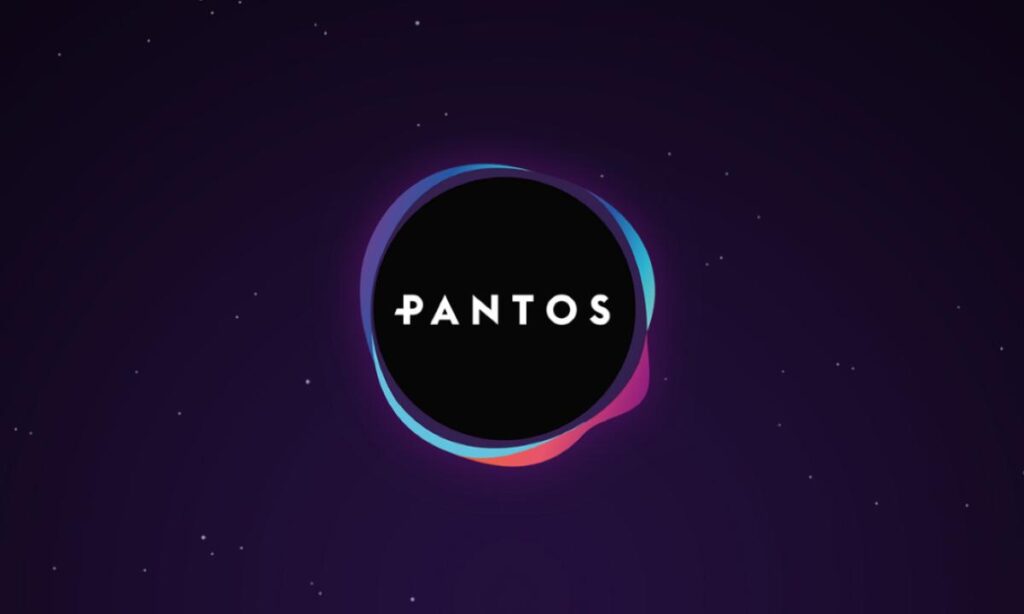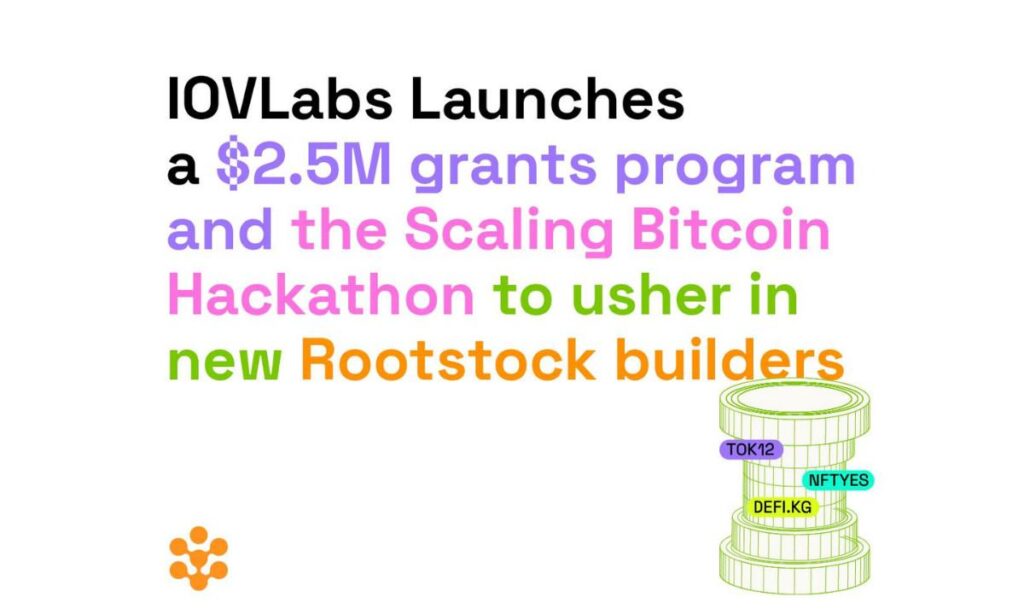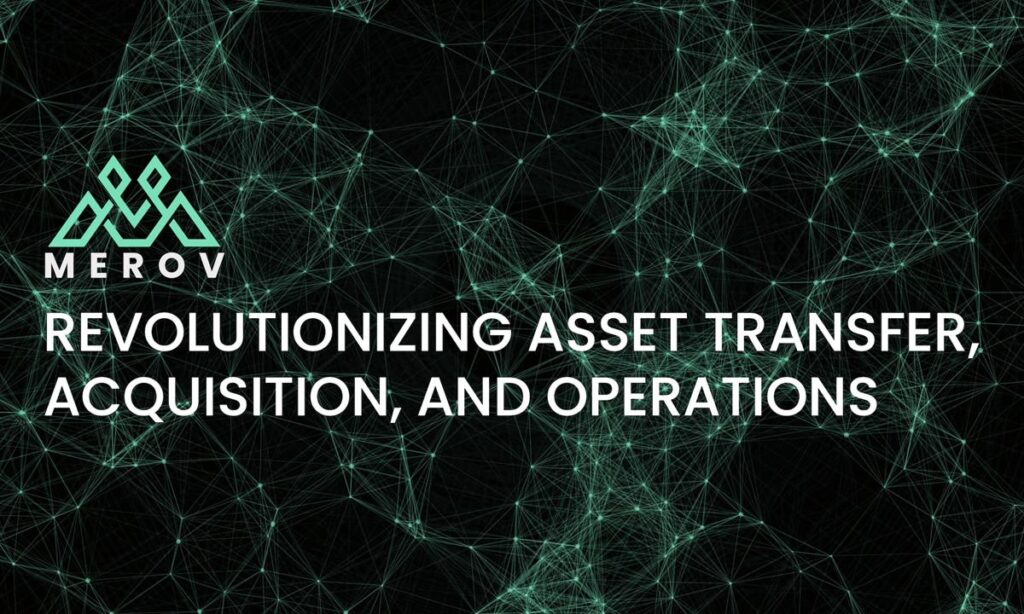Crypto Intelligence News has agreed a content syndication partnership with Binance, which will significantly increase the news platform’s exposure, while providing Binance users with leading market insights and news.
Specifically, this partnership will provide Crypto Intelligence News’ content with exposure to an additional four million active cryptocurrency investors and traders.
“We are delighted to partner with Binance to further improve our brand awareness and content exposure,” Crypto Intelligence News said in a statement.
Crypto Intelligence News has grown steadily in recent years, reaching a monthly readership in excess of 1.2 million.
Over 75 percent of our readers are active investors in cryptocurrencies and/or NFTs, and over 50% of our traffic comes from the US and the UK.
To discuss advertising opportunities or publishing a press release, you can contact our sales team. Alternatively, you can send an email to sales@cryptointelligence.co.uk.
Vienna, Austria, May 17th, 2023, Chainwire
Pantos, a Multichain Token System conceived by the team behind Bitpanda, today announced the public release of the Multichain Token Creator. It is an easy-to-use web app that allows users to configure and deploy their own multichain tokens built on top of the Pantos Digital Asset Standard (PANDAS). Moreover, developers can configure their base token and download the contract code to extend it with their custom functionality.
The Multichain Token Creator makes it easy for projects to launch on multiple blockchain networks, increasing their reach without much effort and creating more opportunities for the community and the projects themselves. Developers, users, and their assets no longer have to be locked to a single chain.
“Our Multichain Token Creator is a defining innovation in the blockchain space, offering developers and projects an effortless way to adopt a revolutionary multichain token standard that drives unparalleled cross-chain collaboration and opens up endless possibilities for the future of decentralized technology,” said Marius Ciortan, the Director of Product Engineering at Pantos.
For developers, the Token Creator dramatically reduces the time and complexity of developing multichain assets, enabling them to launch their tokens within minutes. Users, on the other hand, will have a smoother multichain experience thanks to the increased availability of native multichain assets through the easy token creation process.
Pantos will showcase the Token Creator to the public for the first time during Super Demo at the upcoming EDCON conference, to be held between May 19-23 in Montenegro. It will also introduce the Pantos Digital Asset Standard (PANDAS) at the event. The EDCON Super Demo provides a platform for the startups or projects promoting the development of Ethereum technology and its ecosystem. The Super Demo starts on the first day of the conference, May 19th, and concludes on May 22nd.
Pantos began in 2018 as an in-house research project by Bitpanda in collaboration with TU Wien (Austria) and later also TU Hamburg (Germany) to establish an open standard for truly decentralized multichain token transfers and blockchain interoperability. It allows developers and users to send tokens, wrap native coins of supported chains, and create and deploy native multichain tokens easily with a few clicks.
Pantos currently supports seven chains on testnet: Ethereum, Polygon, Avalanche, BNB, Cronos, Celo and Fantom; and plans to integrate more EVM and non-EVM chains continuously. Earlier this month, Pantos won the ‘Best Business Model’ award at the Austrian Blockchain Award Gala.
About Pantos
Started as a research project by the team behind Bitpanda in 2018, Pantos is an open-source protocol on a mission to make Web3 truly interoperable. It aims to become an enabler for sophisticated Web3 applications. Pantos’ cutting-edge technology allows existing and upcoming tokens to be deployed on multiple blockchain networks, giving users the freedom to choose the most suitable network for their digital assets. It had secured $12.1 million in funding through an Initial Coin Offering (ICO) on Bitpanda in 2018.
For more information, visit: Website | Twitter
Contact
Marsel Nenaj
contact@pantos.io
Miami, USA, May 17th, 2023, Chainwire
IOVLabs, one of the global blockchain technology leaders, announced the launch of a $2.5 million strategic grants program to further enhance the development and adoption of Rootstock, the world’s first Bitcoin sidechain which has become a growing hub of DeFi activity on the Bitcoin network.
The program was revealed today at the inaugural Bitcoin Builders Conference in Miami, a pioneering event focused on Bitcoin Layer 1 and Layer 2 developers.
To discover eligible candidates for the grant program, IOVLabs also announced the launch of a Hackathon in partnership with HackerEarth, a global community of over 4 million developers.
The Hackathon will run from May to July, featuring an ideation stage, a development stage, and a final pitch to an esteemed panel of judges from the Bitcoin and Rootstock ecosystems. Blockchain developers from all over the world are invited to apply.
Given Rootstock’s compatibility with Ethereum Virtual Machine (EVM), no prior knowledge is required to build decentralized applications (dApps) and integrations on the network. Developers can use the same solidity tools and libraries they are accustomed to, including Hardhat, Truffle, web3.js, and ethers.js.
In addition to the possibility of qualifying for the $2.5 million grant program, all Hackathon participants stand a chance to win over $25,000 in prizes.
Hackathon Judges include Rootstock Co-founder Sergio Lerner and mentors include Rootstock Co-founder Diego Gutiérrez Zaldívar. Rootstock ecosystem leaders including representatives from Sovryn and Tropykus will also be judging the hackathon.
Developers can leverage Rootstock’s extensive resources on the DevPortal and gain the ability to incorporate the RIF’s pre-built open-source protocols into their current and future projects.
This is part of a broader effort by IOVLabs to extend the possibilities of Bitcoin beyond being a store of value and help the ecosystem become a full-fledged financial system. The dual-pronged approach of supporting established financial institutions building and launching Web3 products and aiding entrepreneurs and builders with funding and support through hackathons and grants all speaks to IOVLabs’ desire to empower the community. Co-creation and the continual growth of Rootstock’s ecosystem partner list further attribute to that mission.
IOVLabs VP of Growth Pei Chen comments:
“IOVLabs’ support of the strategic grants program demonstrates our strong commitment to provide the tools needed to build a truly decentralized financial system on Bitcoin. This is an opportunity for the next generation of developers to harness the Rootstock sidechain to extend the capabilities of Bitcoin and help create a freer and fairer financial system for all.”
“Rootstock is rapidly becoming known as the home of DeFi on Bitcoin. But we believe now is the time to make it available to everyone, regardless of their technical ability. That’s why the overarching theme of this year’s grant programme is Everyday DeFi. This is how the first billion users will be onboarded to Web3 and together we can make it happen.”
The Hackathon and grants program will encourage developers to explore a range of concepts and projects aligning with the “Everyday DeFi” theme, including:
- Greater interoperability for different blockchains built on or with Bitcoin (dApps, bridges, technical implementations)
- User-centric utility to achieve effective user engagement (real-world use cases, compelling DAO governance modules, data dashboards)
- Unlocking new functionality and liquidity for DeFi (strategic integrations of marketplaces, dApps, DEXes, aggregators, wallets, on/off ramps, oracles)
- Developer Hackathon Bounties for Rootstock infrastructure & tooling (enhancing the foundational tools and resources for sustainable ecosystems, e.g. compiler support, SDKs, libraries, node-as-a-service, merge mining, rollups, etc.)
The Bitcoin Builders Conference, set for May 17th in Miami, will provide an opportunity for hands-on workshops, panel discussions with engineering leaders, and insightful industry keynotes for developers and innovators. The conference will also showcase the latest development tools for Bitcoin.
IOVLabs President Daniel Fogg adds:
“With the Bitcoin Builders Conference underway, I’m excited to see how developers are harnessing Bitcoin’s potential to solve everyday challenges for people around the world. IOV Labs strongly believes Bitcoin sidechains like Rootstock will play a major role in bringing the first billion users to crypto. This conference is an opportunity to celebrate and share our progress so far while acknowledging there’s still work to do. Every network has its sweet spot, and for Rootstock, it’s all about using Bitcoin to create a more accessible and fairer financial system for all. By bringing together EVM compatibility with the unmatched security of Bitcoin, Rootstock offers developers a network that can be trusted to support the financial futures of people worldwide, no matter their economic status.”
Both the grants scheme and the Hackathon aim to encourage developers to build on Bitcoin by leveraging the smart contract capabilities of its Rootstock sidechain.
This initiative helps to futureproof Bitcoin by enhancing its long-term value proposition and promoting sidechains for complex transactions, thereby addressing the ongoing congestion issue on the leading network.
The $2.5 million grants program is fully funded by IOV Labs, which contributes to the development of Rootstock, a decentralized blockchain protocol.
Rootstock use continues to grow, with close to $400m in Total Value Locked (TVL) and over 60 protocols in its ecosystem.
About IOVlabs
IOVlabs develops the blockchain technologies needed for a new global financial ecosystem that fosters opportunity, transparency, and trust.
The organization currently contributes to the development of the Rootstock blockchain and Rootstock Infrastructure Framework (RIF).
The Rootstock network is one of the more secure smart contract platforms in the world, designed to leverage Bitcoin’s unparalleled hash power while extending its capabilities.
Rootstock Infrastructure Framework (RIF) is a suite of open and decentralized infrastructure protocols that enable faster, easier and scalable development of distributed applications (dApps) within a unified environment.
For more information, visit the IOVLabs website.
About Rootstock
Rootstock is the world’s most secure, permissionless and censorship-resistant Bitcoin sidechain. It provides EVM-compatible smart contract functionality using Bitcoin as the native asset. Rootstock takes Bitcoin from a simple store of value and turns it into the foundations of a fully-fledged decentralised financial system.
Rootstock’s native token RBTC is known as “Smart Bitcoin” and lets users use their BTC to interact with a range of services on the Rootstock Bitcoin layer 2. RBTC is an exact 1:1 peg with BTC. (1 RBTC = 1 BTC) When you transfer bitcoin into Rootstock, your bitcoin is locked and the equivalent amount is released as RBTC.
Rootstock is a Bitcoin sidechain that provides EVM-compatible smart contract functionality using Bitcoin as the native asset. Rootstock is the most permissionless and censorship-resistant Bitcoin sidechain. People around the world use Rootstock every day to interact with a range of DeFi protocols such as Sovryn, Tropykus and stablecoin Money on Chain.
Rootstock is permissionless, and its consensus mechanism is merge-mined proof of work (PoW) with over 50% of Bitcoin’s hash power currently mining Rootstock. This means that Rootstock is mined with more hash power than any other chain, except Bitcoin itself.
RBTC is used as gas to pay for smart contract execution on the network, such as the transaction fee for trading Rootstock ecosystem tokens, the same way as ETH is used as gas for Ethereum. Unlike other blockchain native tokens, Rootstock is non-custodial and maintains the censorship resistance of Bitcoin.
Contact
Director of Brand & Communications
Sam Golden
IOV Labs
samuel.golden@iovlabs.org
Dubai, UAE, May 16th, 2023, Chainwire
Influential figures such as heads of global funds, government officials, investors, business owners and promising startups come together in Dubai to shape the future of cryptocurrencies at the 11th International Blockchain Life Forum on October 24-25 in Dubai, Festival Arena.
Buy your ticket now at the presale price here.
The event stays as a meeting point for Crypto Whales, attracting over 7,000 visitors from 120 countries.
Attendees can look forward to informative sessions led by leaders in the crypto industry, revealing insider information on upcoming bullrun trends and other topics. Over 80 speakers are going to share their analytics and world-changing ideas.
What else to expect:
- Over 100 leading companies at the expo
- Startup Pitch with Tier-1 funds as jury and attendees in conference hall
- One of the largest independent awards – Blockchain Life Awards 2023
- Unique online app for finding contacts and vacancies in the crypto industry – Networking 2.0.
- Quick acquaintances in the Speed Networking area and many other formats for new connections
- Legendary AfterParty in one of the World’s most famous clubs, Sky 2.0.
Hurry up and buy your ticket now
Contact
Senior media manager.
Victoria
Blockchain Life
infopartners@blockchain-life
Toronto, Canada, May 16th, 2023, Chainwire
Conflux Network, the first regulatory compliant public blockchain in China and global communications network, China Telecom, today unveiled its jointly developed Blockchain SIM (BSIM) card at the Xuhui District West Bank Artificial Intelligence Center in Shanghai.
In a world first, the BSIM card is a mobile user identification card based on blockchain technology. With an appearance nearly identical to traditional SIM cards, the BSIM card is fully compatible with mainstream mobile terminal systems such as Android and iOS. It also boasts storage space 10-20 times larger than traditional SIM cards and computing power several dozen times greater.
Alongside traditional communications functions, the BSIM card also can generate and store users’ public and private keys within the card. By performing digital signatures in a “private key never leaves the card” manner, the card reduces the risk of users’ mobile terminals being targeted by malware and virus software attacks. Furthermore, the BSIM card can implement encrypted storage, key recovery functions and even integrate traditional U-shield functions. Leveraging the hardware security advantages of the BSIM card to protect users’ private keys. It is currently the safest and most convenient Web3 user terminal entry solution available.
During the launch event, Dr. Wu Ming, CTO and Co-Founder of the Conflux Network, successfully transferred a Commemorative NFT of the China Telecom and Conflux Partnership by pressing the send button within the app. This marked the first on-chain, public use of the BSIM card, as the NFT was transferred from the BSIM card account of Shanghai Conflux Research Institute to the BSIM card account of China Telecom.
Dr. Wu Ming from Conflux stated: “From now on, all mobile communication users can obtain a more secure digital identity through mobile terminals and access Web3 and the metaverse with minimal technical barriers. Blockchain technology has evolved beyond its reputation as a complex and inaccessible concept, transforming into a truly practical infrastructure for applications in the global economy and people’s daily lives.”
Li Anmin, Deputy Dean of the Research Institute at China Telecom Group added: “We are committed to working alongside Conflux Network in developing and promoting practical communication solutions tailored to meet genuine user needs. The BSIM card is just a first step as we collaborate in exploring a diverse range of application scenarios and supplementary products, made possible through the innovative integration of blockchain technology with modern communication advancements.”
The BSIM card will be piloted in Hong Kong before being gradually introduced to mainland and overseas markets.
About Conflux Network
Conflux is a permissionless Layer 1 blockchain connecting decentralized economies across borders and protocols. Recently migrated to hybrid PoW/PoS consensus, Conflux provides a fast, secure, and scalable blockchain environment with zero congestion, low fees, and improved network security.
As the only regulatory-compliant public blockchain in China, Conflux provides a unique advantage for projects building and expanding into Asia. In the region, Conflux has collaborated with global brands and government entities on blockchain and metaverse initiatives, including the city of Shanghai, McDonald’s China, and Oreo.
Contact
Melissa Tirey
melissa@shift6studios.com
Salem, Oregon, May 15th, 2023, Chainwire
Merov is proud to announce the launch of its comprehensive suite of services designed for the Bitcoin mining industry. The suite of services includes Merov Hosting, Rejuvit Systems by Merov, and Merov Marketplace, each providing solutions to the needs of the Bitcoin mining industry.
“As a pioneer in the industry, we are excited about the opportunities these services present, and we look forward to continuing to innovate and provide exceptional services to the Bitcoin mining community,” said Montana L. Dukes, Founder and Chief Executive Officer of Merov.
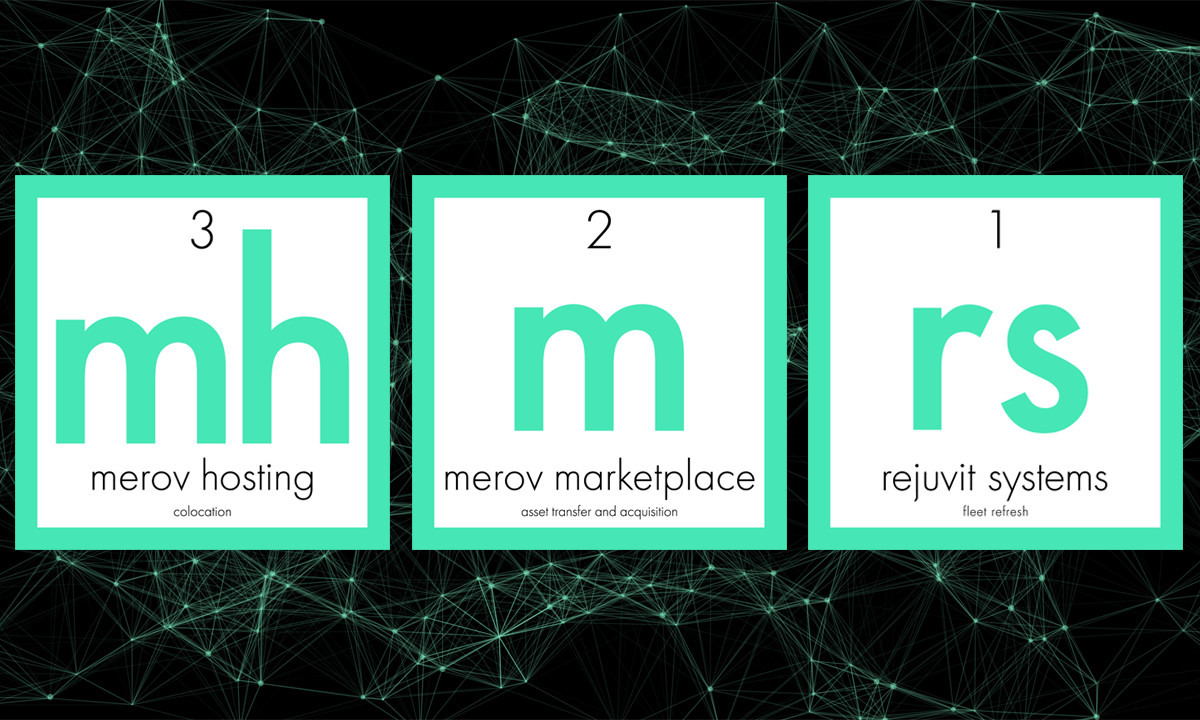
Merov Hosting offers state-of-the-art colocation facilities designed to provide the highest levels of performance, reliability, and security for Bitcoin miners.
Rejuvit Systems by Merov is a US-based parts distributor and ASIC repair company with high-quality repair, training, and tools at competitive prices.
Merov Marketplace is an innovative platform that provides due diligence, asset sale, distribution, and procurement services to the Bitcoin mining industry. It is currently in beta testing and will launch in Q3 ‘23.
Milestones Achieved
- $771.96mm in ASIC mining infrastructure deals closed or currently engaged in.
- 105,455 ASICs processed through Merov’s acquisition, verification, repair, or fulfillment services.
- 400+ megawatts of colocation capacity becoming available ’23-’24.
About Merov:
Merov is a team of passionate and experienced professionals committed to enhancing the Bitcoin industry. With a deep understanding of the industry and a range of expertise in related fields, we strive to deliver innovative, reliable, and comprehensive solutions tailored to our clients’ needs.
Our mission is to bridge gaps and streamline operations, enabling businesses and individuals to thrive in the rapidly evolving world of Bitcoin. By pushing the boundaries of technology and staying at the forefront of industry developments, we are dedicated to driving growth, fostering innovation, and empowering our clients to reach their full potential.
Follow Merov on Telegram and Twitter.
Merov is a proud sponsor of the Bitcoin Conference, May 18-20, 2023. Come meet the Merov team at booth 1206.
Contact
Chief Creative Officer
Rachel Schimelman
Merov
press@merov.io
JPMorgan Chase CEO, Jamie Dimon, has expressed concern about the potential repercussions for US banks should the Federal Reserve resort to an overregulatory approach in response to crisis. This comes in the wake of JPMorgan’s recent acquisition of the beleaguered First Republic Bank.
In an interview with Bloomberg TV on May 11, Dimon warned that the banking sector could face further difficulties unless the Federal Reserve adopts more proactive strategies, as opposed to merely increasing regulations.
The initial months of the year have already seen the collapse of three major US banks: Signature Bank, Silicon Valley Bank, and First Republic Bank.
Dimon attributed these failures to a problem with supervision, arguing that the onus should be on the bank CEOs and board members, who are usually the focus of compliance with regulations.
He voiced skepticism about the efficacy of adding more regulations to the Federal Reserve’s already voluminous 200,000-page stress test, arguing that this is not the remedy for the ongoing banking crisis.
According to Dimon, increasing regulations impedes banks’ business operations, pointing out that several community banks now employ more compliance personnel than loan officers.
He advocated for a comprehensive approach to regulatory reform, observing that existing rules already number in the hundreds and may hinder banks’ operations.
Dimon also questioned the reliability of stress tests, suggesting that companies that concentrate solely on passing these tests may neglect other issues, including recurring historical events. He warned that overreliance on a single stress test can instill a deceptive sense of security.
Dimon criticized the Federal Reserve for its apparent lack of foresight, stating that none of the Fed governors had predicted the banking crisis.
This isn’t the first time a JPMorgan executive has aired grievances about banking regulations. On April 27, Bob Michele, the chief investment officer of J.P. Morgan Asset Management, commented in a Bloomberg TV interview that the liquidity issues of First Republic Bank should not have occurred given the stringent regulatory environment in the banking industry.
More recently, on May 1, it was announced that JPMorgan would be acquiring the assets of First Republic Bank (FRB) after unsuccessful attempts to rescue it.
Seattle, USA, May 11th, 2023, Chainwire
A new memecoin has emerged with more than 70 years of history behind it and the goal of unseating current meme king PEPE. $LOVESNOOPY is a meme token with a Snoopy theme backed by the love of fans and armed with formidable meme power. With a fandom that has grown over generations, the anticipated impact of $LOVESNOOPY is high.
$LOVESNOOPY is the latest in a long line of dogcoins including Dogecoin (DOGE), Shiba Inu (SHIB), FLOKI (FLOKI), and Baby Doge Coin (BabyDoge). The Snoopy-themed token arrives on the market at a time when interest in memecoins is at a two-year high. The trading volume of meme coins reached $2.3 billion last week, the highest since May 2021

The official website of $LOVESNOOPY supports all languages in the world including English, Arabic, Chinese, Japanese, French, German, and Vietnamese, showcasing its global ambitions. $LOVESNOOPY has made a powerful entrance onto the scene by trading on Uniswap and announcing listings on five centralized exchanges (CEXs). Its rapid rise has prompted speculation that it could quickly ascend to become a blue-chip player in the world of memecoins.
Since its debut, $LOVESNOOPY has captured the attention of cryptocurrency investors, rapidly gaining a foothold in the market. Observers will be watching closely to see whether it can surpass Pepe token and Dogecoin and claim its position as the ‘Meme King’ amidst the flood of contenders.
About $LOVESNOOPY
The main utility of $LOVESNOOPY is to establish a vibrant and impassioned meme community that we can embrace with all our hearts. LOVESNOOPY’s path to global domination is simple! Just enjoy and ‘LOVE SNOOPY’! The more people enjoy and LOVE SNOOPY, the more indelible his legacy as a beloved meme will become.
Contact
I LOVE SNOOPY team
ilovesnoopy1949@gmail.com
Abu Dhabi, UAE, May 10th, 2023, Chainwire
Venom Foundation has announced a strategic partnership with the Government of Kenya to establish a “blockchain hub” in Africa, focusing on the development of Web3 and blockchain technology applications. This collaboration aims to drive innovation in key sectors such as financial infrastructure, supply chain, agriculture, SMEs, and cross-border trade, benefiting Kenya and the entire African continent.
More than 84% of the Kenyan population have access to financial services through banks and fintech. However, with the implementation of blockchain infrastructure as a long term strategy it will further increase the value for the population, create more opportunities for the Kenyan domestic economy, create new international trade routes and add efficiency to intra African trade lines.
Venom Foundation’s expansion into Africa highlights the continent’s forward-thinking approach to adopting web3 and blockchain technologies, showcasing its commitment to embracing innovation and leading through implementation. By advocating for the adoption of blockchain technology, Venom Foundation seeks to empower African communities, create a bridge between traditional finance and trade with the web3 world, and stimulate regional economic growth by enabling seamless cross-border trade and transactions.
Tangible benefits that can be realized include minimized transaction costs, enhanced security and transparency, increased access to financial services, expedited settlement times for cross-border transactions, and the creation of new investment opportunities through asset tokenization. These advancements hold considerable potential to substantially contribute to economic development and financial inclusion across the continent.
The blockchain hub will act as a central platform for forging partnerships with innovative companies, fostering knowledge sharing, networking, and collaboration among key stakeholders in the blockchain space, such as projects, entrepreneurs, and government officials based in Africa. Venom will also supply crucial tools and resources to support African countries in establishing a solid foundation for digital transformation. This includes blockchain-based solutions for supply chain management, land registry,
voting systems, tokenization of assets, and other areas where blockchain technology can make a significant impact. By implementing these solutions, the partnership aims to promote transparency, efficiency, and trust across various sectors throughout the continent.
Christopher Louis Tsu, CTO for the Venom Foundation, commented “Africa is already rich in natural resources and human capital, by bringing next generation blockchain technology to the continent it will empower the people and help not only Kenya but many other African nations to capitalize on their assets and participate in new global markets, competitively”
The Kenyan government also expressed enthusiasm for the partnership. Moses Kuria, the Cabinet Secretary for Investments, Trade and Industry, stated, “We are excited to work together with the Venom Foundation. This collaboration signifies the stance that we are taking towards next-generation technology, and financial and technological developments in the world. We believe that the establishment of this blockchain hub will catalyze further innovations in various industries, benefitting our people both nationally and globally.”
About Venom Foundation
Venom Foundation is licensed by the ADGM and enables the acceleration of global Web3 projects. The decentralized network operates under the jurisdiction of the Abu Dhabi Global Market (ADGM). The ADGM is an oasis for investors and financial services firms, positioning Venom as the world’s first compliant blockchain, affording authorities and enterprises the freedom to build, innovate, and scale.
A portfolio of in-house dApps and protocols has been developed on the Venom blockchain by various companies. With capabilities of dynamic sharding, low fees, ultra-fast speed and scalability, Venom harbors the potential to function as the main infrastructure for a global ecosystem of Web3 applications, possessing ultra-fast transaction speeds and infinite scalability to meet the demands of an ever expanding user base.
For more information about the Venom testnet launch, visit: Website
For more information about Venom Foundation, visit: Website | Twitter
Contact
Adam Newton
pr@venom.ventures
WhiteBIT is the most prominent crypto exchange in Ukraine. It is constantly advertised and widely known. A lot of effort is put into developing the PR component. In 2022, WhiteBIT launched joint projects with the Ministry of Foreign Affairs, in particular, regarding the support of Ukrainian refugees. WhiteBIT has recently announced cooperation with the Ministry of Digital Transformation. The country’s main digital agency is launching free crypto literacy training together with this exchange.
Additionally, the owners of the crypto exchange are investing in sponsorship contracts with football clubs and our national team. The exchange became a sponsor of the Turkish football club Trabzonspor, paying 4.5 million euros for its logo to be displayed on the players’ shirts during 3 seasons.
Later, in December 2022, Whitebit signed a similar agreement with FC Barcelona, and shortly afterwards, in January 2023, with the Ukrainian national football team. The amounts of the last two deals were not disclosed.
All these steps should make this crypto exchange look interesting and encourage people to use it.
But in reality, there are a number of questions towards Whitebit, and I am pretty sure that at least one of them deserves to be investigated by the British National Crime Agency.
Who Stands Behind WhiteBIT?
According to the conventional wisdom, WhiteBIT was founded in 2018 by Volodymyr Nosov, a Kharkiv resident who used to sell parquet. He is the person who represents the crypto exchange, speaks on its behalf, and signs agreements.
However, in fact, the WhiteBIT group now includes at least 9 companies registered in different countries. The oldest of them in the Estonian jurisdiction is Whitebit Financial Company OÜ. It was registered at the time of the founding of the crypto exchange itself. This jurisdiction was highly popular among Ukrainian IT businesses in those years because of its convenient administration and low taxes.
Volodymyr Nosov created the company not alone, but jointly with three other people: his partners were Hanna Yankovska, Maria Repeshko, and Mykyta Shentsev.
Yes, the same Mykyta Shentsev who recently resigned his mandate as a deputy of the Kharkiv Regional Council from the OPFL. Moreover, according to the media, he was deprived of Ukrainian citizenship by President Volodymyr Zelenskyy. According to Censor.Net, Mykyta Shentsev is a citizen of Russia since 2014. However, the ex-deputy himself denies the claim.
As we know, Mykyta is the son of Dmytro Shentsev, a formerly influential former member of the Verkhovna Rada from Kharkiv region. The latter was a member of the Party of Regions, the Opposition Bloc, and eventually was elected from the OPFL in the last parliamentary elections. He resigned his mandate in the fall in 2022, and until then was considered to be a representative of the “Kharkiv” group of former Party of Regions members.
Another founder of the Estonian Whitebit, Maria Repeshko, works with Mykyta Shentsev in the legal business.
It is worth noting that over time, the list of beneficiaries of the Estonian crypto-exchange company has changed. There were new people, such as Hlib Ushakov, Nosov’s partner, or WhiteBIT’s vice president Oleksii Kovalev. All the while, however, the share of Mykyta Shentsev’s ownership was steadily increasing.
As of March 1, 2023, Shentsev controlled 51% of WhiteBIT Financial Company OÜ. Another 5% belonged to his partner Maria Repeshko. On March 2 this year, both Nikita Shentsev’s and Maria Repeshko’s shares were re-registered to Volodymyr Nosov.
This can only mean one thing: Whitebit was not only Volodymyr Nosov’s startup. An influential family of pro-Russian politicians from Kharkiv oblast, who has extensive ties, was involved in its formation, and until last month, its representatives controlled the company completely. It is quite possible that they still control it, through a new formal owner.
However, this is not the only suspicious connection of Whitebit, to put it mildly.
The financing of the attempted coup in Montenegro
Another crypto exchange structure registered in the UK is WhiteBIT Solutions LLP. The company is owned by two offshore founders – Whitebit LTD and Coddan Nominee.
These two companies are registered in the same room in the Seychelles. The offshore registrar Nobel Capital Group also operates there.
This is where the most interesting part begins.
Coddan Nominee acts not only as a co-founder of a large crypto exchange company that cooperates with the Ukrainian authorities. Researchers consider Coddan an important component of an extensive offshore network. However, exactly what kind of network is it?
In 2014-2016, Coddan was the founder of Sofbiz.
According to “Radio Svoboda” (Radio Liberty), this company transferred one and a half million euros to the organizers of the failed coup in Montenegro in October 2016. According to Montenegrin investigators, these funds were intended for the assassination of the former Prime Minister and current President of Montenegro, Milo Đukanović.
As stated by Montenegro’s Special Prosecutor Sasha Chadenovic that summer in 2019, the funds transferred by the company first went to bank accounts in Cyprus, and only then were transferred to a group of people involved in the coup attempt. The aim of the coup, according to the investigation, was to prevent Montenegro from joining NATO and ensure that pro-Russian forces would take control.
An investigation by the Bellingcat group and its Russian partner The Insider found that CIO (Chief Intelligence Office) officers of the Russian General Staff, Eduard Shishmakov and Volodymyr Moiseev, were behind the coup attempt. It was they who organized work with pro-Russian politicians in Montenegro and involved Serbian citizens in this coup attempt.
At the same time, the same CIO officers were also involved in recruiting Serbs for the war against Ukraine in Donbas and helped in organizing intelligence for terrorists from the so-called “DPR”.
Taking into account these relations, the conclusion is quite obvious – the aforementioned “Seychelles” offshore network can be controlled by the Russian CIO and used to finance its terrorist operations around the world.
One of the elements of this network, Coddan, was not dismantled even after it became a part of an international scandal concerning coup attempts in a European country. More importantly, in 2020, he suddenly appears among the founders of a major crypto exchange connected to Ukrainian pro-Russian figures. How was this possible? I sent an inquiry to the British National Crime Agency regarding this matter, but by the time of the publication of this article, I have not yet received a response.
Money laundering
A few days ago, at the end of March 2023, Russian IT journalists noticed the movement of a large amount of money (about $88 million) in bitcoin associated with the Russian crypto exchange BTC-e.
These bitcoins remained unchanged since November 2022, and in summer 2022, the founder of the BTC-e exchange, Russian Oleksandr Vinnyk, was extradited to the United States with a possible 55-year prison sentence for financial fraud and laundering $4 billion.
Some representatives of the Russian crypto market were outraged by the fact that, according to them, part of this amount, about $12 million, was transferred to the supposedly Ukrainian exchange Whitebit.
Should this be true, it means that Whitebit is still working with Russia, and with the money of a person whom the FBI intends to imprison for the rest of his life.
On Patrushev’s table
In addition to the fact that the crypto exchange itself can be a much more convenient tool for financing mercenaries or politicians than international transfers, it also attracts a large number of users. They often strongly believe in the anonymity of their cryptocurrency transactions.
This is especially true when they use the products of a seemingly completely “white” trendy startup that helps Ukrainian refugees and, together with the Ministry of Digital Transformation, trains them in crypto literacy.
These users do not even suspect that not only Russians or pro-Russian politicians, but the Russian CIO itself may operate inside this structure. And all customer transfers can be accessed at any time by the apparatus of the Kremlin’s supervisor of Russian special services, Mykola Patrushev.
We should not forget that at a time when the Ukrainian government is trying its best to block any Russian influence in Ukraine, the Russian General Staff can go behind its back under attractive and fashionable signs.
Considering this, the activities and origins of the Whitebit crypto exchange deserve at least the interest of the Security Service of Ukraine and other competent authorities. And at the very least, it deserves an international investigation, with the involvement of the UK and Montenegro’s intelligence services.



